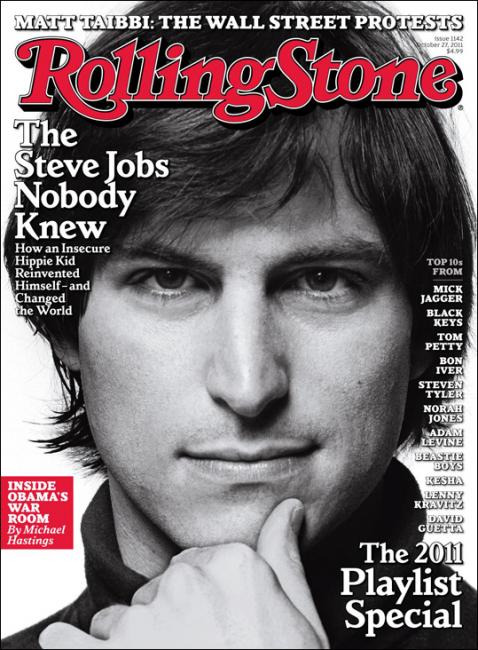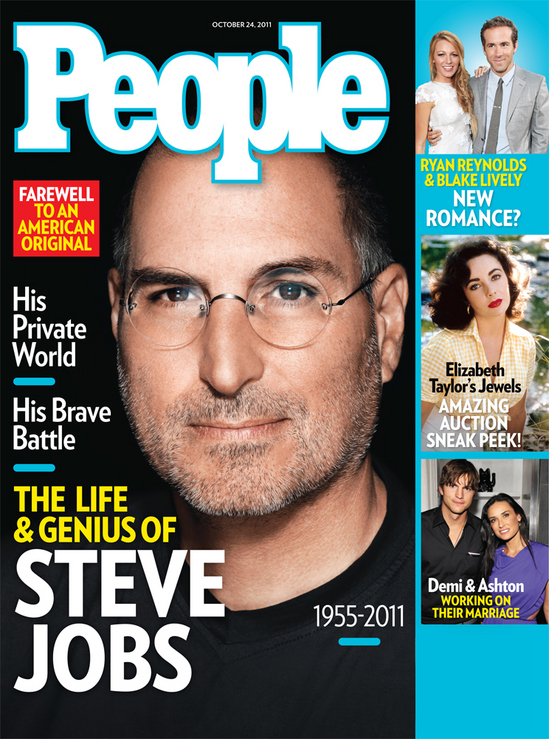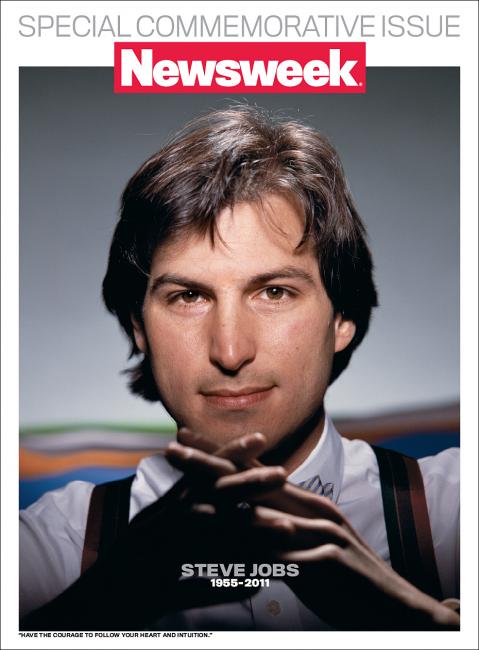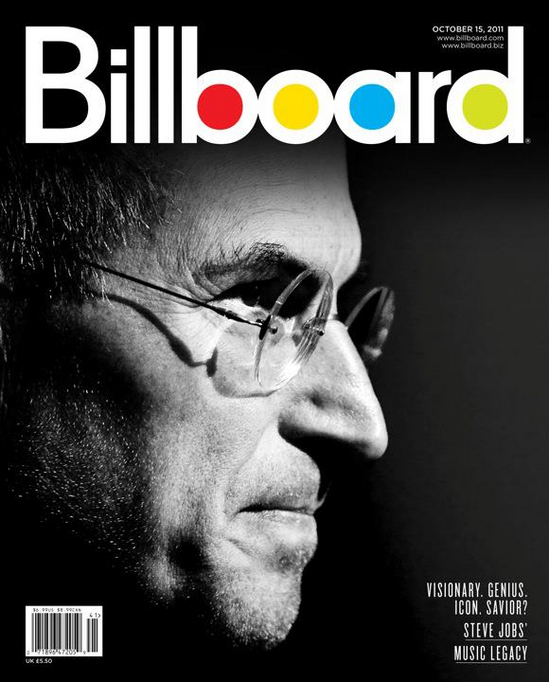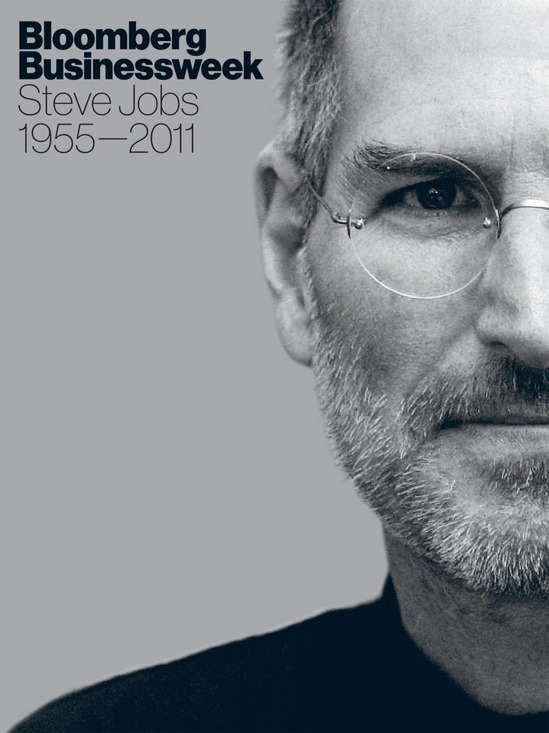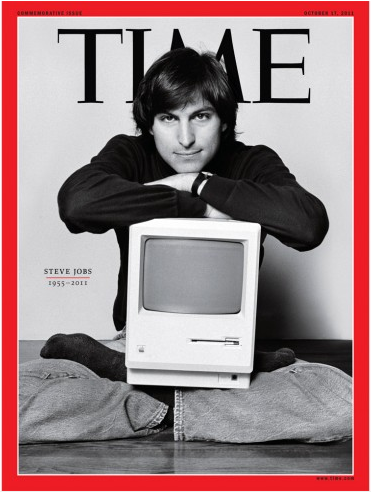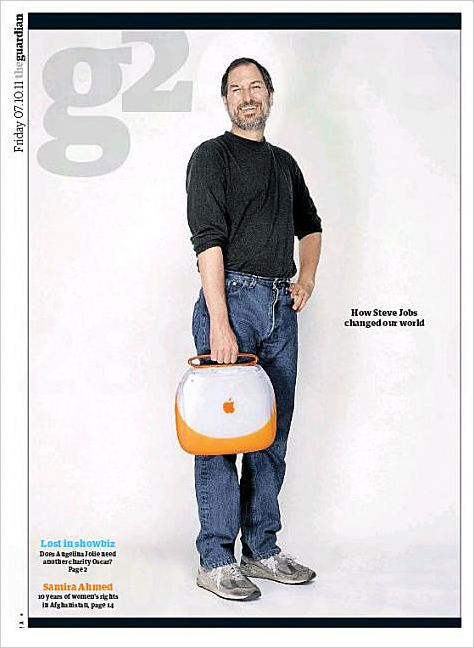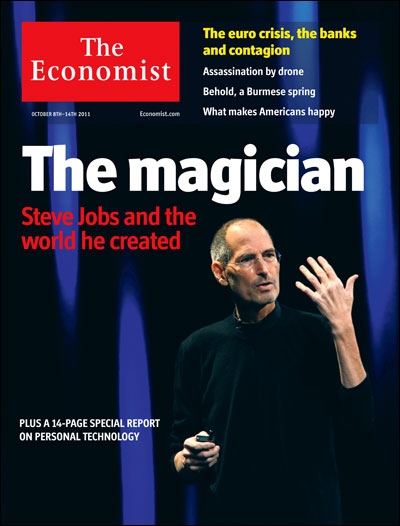Respect
10.06.11
Farewell to an Icon: Steve Jobs (1955-2011)
Personally, Steve gets my vote to get into the honorary Art Directors Hall of Fame. Great AD's don't necessarily take the pictures, draw the drawings or write the words -- but they do harness all of these elements to tell a story and build a product. That's what Steve did with Apple. Steve didn't write code, design packaging, or carve aluminum. He was able to create beautiful products by identifying and evangelizing the best user experience, industrial design, graphic design and marketing in the world.
Every editor and designer has been impacted by all that Steve Jobs created. We changed the way we wrote, designed, perceived audiences, all because Steve Jobs gave us the most incredibly beautiful and functional tools to do it. The fact that he sat at the intersection of art and technology should be an example to all of us who sit at that intersection daily.--Mario Garcia, CEO/Founder, Garcia Media
It's the design that is at the heart of Apple, and even there the hardware and UX designers took inspiration from the whole culture. Much has been made, at least since they sued Samsung, about how Apple devices look like props in the movie "2001"--or old Braun radios or calculators designed by Dieter Rams.Jobs didn't copy, he absorbed. And took in not just the visual design profession, but basic human behavior and popular culture. The Times did have some insight on this in a story early last year:
Great products, according to Mr. Jobs, are triumphs of "taste." And taste, he explains, is a byproduct of study, observation and being steeped in the culture of the past and present, of "trying to expose yourself to the best things humans have done and then bring those things into what you are doing." --Steve Lohr, The New York Times
Job's relentless quest for the insanely great was successful because he hit the cultural mark. Apple made an experience, not a just a machine. He didn't sit and look at the competition's hardware and software. He looked at the world, and the human race.He didn't code, he didn't design, he didn't build. He just thought.And all of us Apple users are wondering what we'll do without him. Will Apple be as good? How can they be as good? That perfect synthesis of culture, which is the very essence of great design, is gone. [read the full post here]--Roger Black
Steve helped the world understand that design is to be cherished, fought for, and protected at all costs. He understands that good design--whether in the layout of Pixar's campus or in the pixel colors in an icon--is good business. Steve made it acceptable for corporate America to care about the design of every aspect of business, and I think the world is a more beautiful place for his vision.I hope his most lasting contribution to design is the belief that details can change the entirety of purpose. And sometimes, the removal of detail can lead to the purest expression of form meeting utility. One only need look at the iPhone--a computer in your hand, a device that can literally do millions of things, and it has one button. His is a breathtaking vision of simplicity, balance, and calm, and there isn't a designer on the planet who hasn't been inspired by the man.--Scott Dadich, Conde Nast
According to executive design recruiter RitaSue Seigel, since the success of Apple, companies started asking "find me a Jonathan Ive". Through example, Steve Jobs showed everyone what we designers already knew (or hoped): design could be important.--Luke Hayman, Pentagram
I was teaching a type workshop at SVA yesterday when a student shared a text from a friend about the passing of Steve Jobs. The class sat silently for a few minutes, unsure of what to say or do. We were sad--it was the same kind of sadness that blankets you when someone you know dies. It's impossible to do justice to all of the ways one man's vision has impacted our day-to-day lives and careers.--Gail Anderson
It is impossible to imagine a world without Apple products or Steve Jobs. How often do we wish for the immortality of a corporate CEO. I think that says it all.--Steven Heller
I had the privilege of meeting Steve Jobs in the mid-1990s, after he had resigned from Apple following a clash with John Sculley and started a computer company called NeXT. It was a different time -- a visit from Jobs stirred interest from only a handful of writers and editors in a small conference room at The New York Times, leaving space for a page designer to take one of the seats. Even then, with Apple struggling and NeXT not quite there, he was remarkably confident and spoke in such a way that everyone in the room leaned forward to take in every word. Steve Jobs stayed the course, overcoming one setback after another to recompose the world as he believed it should be. He inspired so many on so many levels, and for me that chance meeting leaves an indelible impression today. We live in a malleable world, shaped by those who are most steadfast in their beliefs. Steve Jobs' legacy will continue to effect change for centuries to come.-- Joe Zeff, Joe Zeff Design
Rolling Stone, October 27, 2011
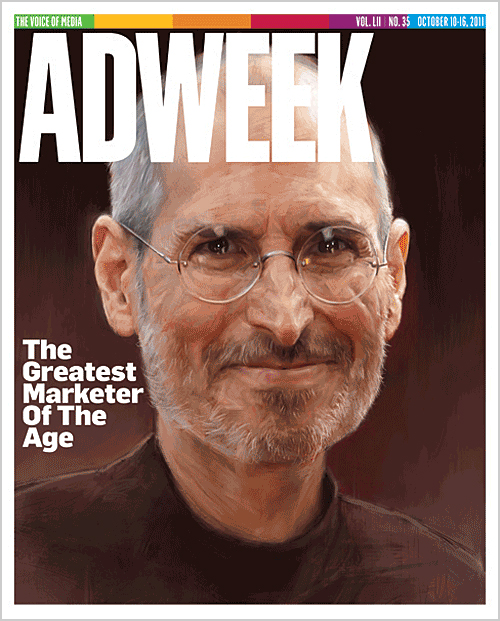
People, October 14, 2011
The New Yorker, October 17, 2011
Newsweek, October 2011
Billboard, October 15, 2011
Bloomberg Businessweek, October 2011
What did Steve Jobs mean to you? Please share you thoughts.
See related stories:
